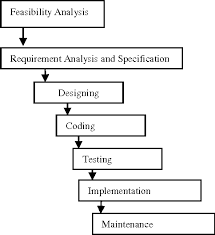Debunking the Myth of the 10x Programmer: The Truth Behind Software Development Productivity
The Myth of the 10x Programmer
There’s a popular concept in the software development industry that some programmers are “10x programmers” – individuals who are ten times more productive than their peers. This idea has sparked debates and discussions among developers and tech enthusiasts.
While it’s tempting to believe in the existence of such superhuman programmers, the reality is often more nuanced. Productivity in software development is influenced by a variety of factors, including experience, collaboration, tools, and project complexity.
Research has shown that individual productivity variations among programmers are not as extreme as the 10x myth suggests. Instead, high-performing teams with diverse skill sets tend to deliver better results collectively than relying on a single “rockstar” developer.
Furthermore, the emphasis on individual productivity can overshadow the importance of teamwork, communication, and shared goals in software projects. Collaboration and knowledge sharing within a team often lead to more sustainable and successful outcomes.
It’s essential for organizations to foster environments that promote teamwork, continuous learning, and mutual support among team members. Building a culture of collaboration and inclusivity can enhance overall productivity and innovation within a development team.
In conclusion, while the idea of a 10x programmer may be appealing, it’s crucial to recognize that successful software development is a team effort. By valuing collaboration, diversity of thought, and continuous improvement, organizations can achieve greater success in delivering quality software products.
Understanding the 10x Programmer: Existence, Traits, and Impact on Software Development Teams
- What is a 10x programmer?
- Do 10x programmers really exist?
- How can I become a 10x programmer?
- What are the characteristics of a 10x programmer?
- Is the concept of a 10x programmer beneficial for software development teams?
What is a 10x programmer?
A 10x programmer is a term used to describe an individual who is believed to be exceptionally more productive than the average programmer, potentially delivering ten times the output. This concept suggests that certain developers possess unique skills, efficiency, and expertise that enable them to work significantly faster and produce higher-quality code compared to their peers. While the idea of a 10x programmer has gained attention in the software development industry, there is ongoing debate about the validity and practical implications of such a designation.
Do 10x programmers really exist?
The question of whether 10x programmers truly exist is a common topic of discussion in the software development community. While the concept of individuals who are ten times more productive than their peers is intriguing, empirical evidence suggests that such extreme productivity differences are rare. Productivity in programming is influenced by various factors, including experience, collaboration, and project complexity. Rather than focusing on individual performance metrics, emphasizing teamwork, knowledge sharing, and a supportive work environment can lead to more sustainable and successful outcomes in software development projects. Ultimately, while exceptional programmers certainly exist, the collective effort of a high-performing team often yields the best results in the long run.
How can I become a 10x programmer?
Becoming a “10x programmer” is a common aspiration among many in the software development community. While the idea of achieving exceptional productivity and efficiency is appealing, it’s important to remember that there is no one-size-fits-all formula for becoming a 10x programmer. Instead of focusing solely on individual performance metrics, aspiring developers can benefit from honing their technical skills, cultivating a growth mindset, and actively seeking opportunities for learning and collaboration. Embracing continuous improvement, staying curious, and staying open to feedback are key attributes that can contribute to personal and professional growth in the field of software development. Ultimately, becoming a highly effective programmer involves dedication, persistence, and a willingness to adapt to new challenges and technologies as they arise.
What are the characteristics of a 10x programmer?
When discussing the characteristics of a 10x programmer, several traits are often highlighted. These individuals are known for their exceptional problem-solving skills, deep technical expertise, efficiency in coding, and ability to quickly grasp complex concepts. They are proactive in seeking out solutions, highly motivated, and continuously strive to improve their skills. Communication skills are also crucial for a 10x programmer, as they need to effectively collaborate with team members and stakeholders. Additionally, a strong work ethic, creativity in finding innovative solutions, and a passion for learning and staying updated with the latest technologies are commonly associated with these high-performing developers.
Is the concept of a 10x programmer beneficial for software development teams?
The concept of a 10x programmer, referring to individuals who are exceptionally more productive than their peers, is a topic of debate within the software development community. While the idea of having such high-performing individuals on a team may seem beneficial at first glance, it is important to consider the potential drawbacks. Focusing solely on individual productivity can undermine the value of teamwork, collaboration, and shared responsibility in software development projects. Emphasizing team dynamics and creating an environment that encourages knowledge sharing and collective problem-solving often leads to more sustainable and successful outcomes for software development teams. Ultimately, striking a balance between recognizing individual contributions and fostering a collaborative team culture is key to achieving long-term success in software development.




